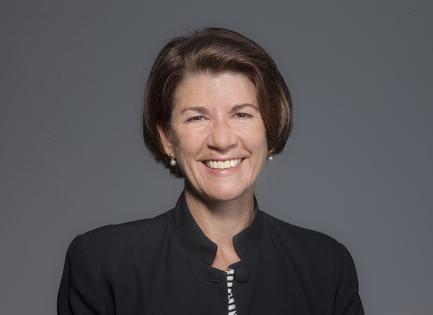Ask Amy: Depressed elder worries depressed child
Dear Amy: My 83-year-old widowed mother is depressed, and I don't know how to help.
She refuses to see a therapist and sees drugs as a crutch. She has always been a very private person, is generally distrustful of doctors, and would never let down her shields to a stranger.
I have told her that I am not a therapist, but she has lately begun to confide in me about things that, even as an adult, I shouldn't be hearing.
Depression runs in the family. I have seen a therapist in the past and am on medication, so I understand and empathize, but it's getting to the point where I dread seeing her, and yet I know that I'm her only lifeline.
How do I help her?
– Worried
Dear Worried: People sometimes start to reveal long-repressed or suppressed trauma very late in life, when – for a variety of reasons (medical, emotional, and cognitive) – their defenses are down. Studies of WWII survivors have shown that the strong and stoic “Greatest Generation” have experienced nightmares, remembered traumatic events and suffered from depression very late in life.
Quoting from one study: “In aging individuals, the classical symptoms of posttraumatic stress disorder (PTSD) may not be manifest, yet considerable distress may occur in the face of re-awakened memories of traumatic experiences.”
Therapy helps. Medication helps. And yet many elders are resistant to the idea of treatment in the ways your mother is.
My first suggestion is that you should resume in-person (or telehealth) therapy right away, in order to process this burden, which is a trigger for you.
I urge you to seek healthy ways to be open and present for your mother, while resisting the temptation to try to provide answers or your own brand of therapy for her.
Being in the moment with her is a special and challenging kind of witnessing. You stroke her hand. You say, “Mom, I’m so sorry. I’m so very sorry.” You sit quietly, and if you’re able, you stay quietly in the moment with her, letting her speak.
I wonder if you might be able to urge your mother toward treatment by asking her if she would consider doing this “for” or with you.
A good and competent therapist helps their client transition from being a stranger – to a trusted and helpful ally.
Dear Amy: I got married (at 30) to a man who had two children.
The girl was seven, the boy was two.
We were together for 16 years before divorcing, and although I have a close bond to the now 53-year-old former step-daughter, I have never been successful in having a bond with the son.
Now, 30 years after my divorce from his father, I received an invitation to his daughter’s high school graduation party.
I am flummoxed and am unsure about how to respond to this gesture.
I do not know this young woman and have never been included in their lives.
Should I just send a nice card?
– On the Fence
Dear On the Fence: Yes, just send a nice card. There is never a downside to sending a nice card.
In the far corners of your personal universe, someone, somewhere, suggested that this young woman should reach out to you to invite you to her graduation party.
The graduate’s aunt (the former step-daughter you’ve stayed close to) might have encouraged her brother and his daughter to make an effort to get to know you a little bit.
Some people might accuse this girl of “trolling for gifts,” but my theory is that the high school graduation celebration is often the first party young people have inviting privileges to which includes a wider circle than their immediate friends – and they tend to cast a wide and sometimes awkward net.
Dear Amy: “Sad Future Bride” had no men in her life to walk her down the aisle and her mother didn't want to do it, either.
My niece was recently wed. She was an older bride marrying for the second time and I was pleased to see their processional. She entered alone, moving slowly down the aisle with her eyes on her groom who waited for her at the half-way point. There they joined hands and continued together to the front.
I thought about the symbolism of their entry: two people alone, meeting halfway, and traveling the rest of the way together. Sounds like the definition of a marriage, doesn't it?
– Wedding Witness
Dear Witness: This is great. I hope it catches on.
========
(You can email Amy Dickinson at askamy@amydickinson.com or send a letter to Ask Amy, P.O. Box 194, Freeville, NY 13068. You can also follow her on Twitter @askingamy or Facebook.)
©2024 Amy Dickinson. Distributed by Tribune Content Agency, LLC.


















Comments